先天下之忧而忧
先天下之忧而忧,后天下之乐而乐!
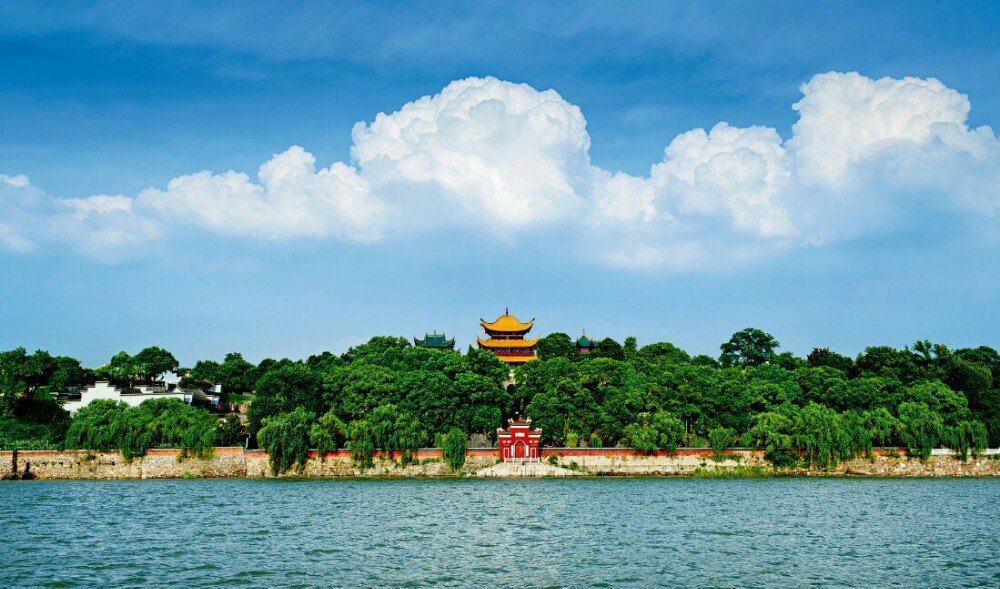
原文:
庆历四年春,滕子京谪守巴陵郡。越明年,政通人和,百废具兴,乃重修岳阳楼,增其旧制,刻唐贤今人诗赋于其上,属予作文以记之。
予观夫巴陵胜状,在洞庭一湖。衔远山,吞长江,浩浩汤汤,横无际涯,朝晖夕阴,气象万千,此则岳阳楼之大观也,前人之述备矣。然则北通巫峡,南极潇湘,迁客骚人,多会于此,览物之情,得无异乎?
若夫淫雨霏霏,连月不开,阴风怒号,浊浪排空,日星隐曜,山岳潜形,商旅不行,樯倾楫摧,薄暮冥冥,虎啸猿啼。登斯楼也,则有去国怀乡,忧谗畏讥,满目萧然,感极而悲者矣。
至若春和景明,波澜不惊,上下天光,一碧万顷,沙鸥翔集,锦鳞游泳,岸芷汀兰,郁郁青青。而或长烟一空,皓月千里,浮光跃金,静影沉璧,渔歌互答,此乐何极!登斯楼也,则有心旷神怡,宠辱偕忘,把酒临风,其喜洋洋者矣。
嗟夫!予尝求古仁人之心,或异二者之为,何哉?不以物喜,不以己悲,居庙堂之高则忧其民,处江湖之远则忧其君。是进亦忧,退亦忧。然则何时而乐耶?其必曰“先天下之忧而忧,后天下之乐而乐”乎!噫!微斯人,吾谁与归?
时六年九月十五日。
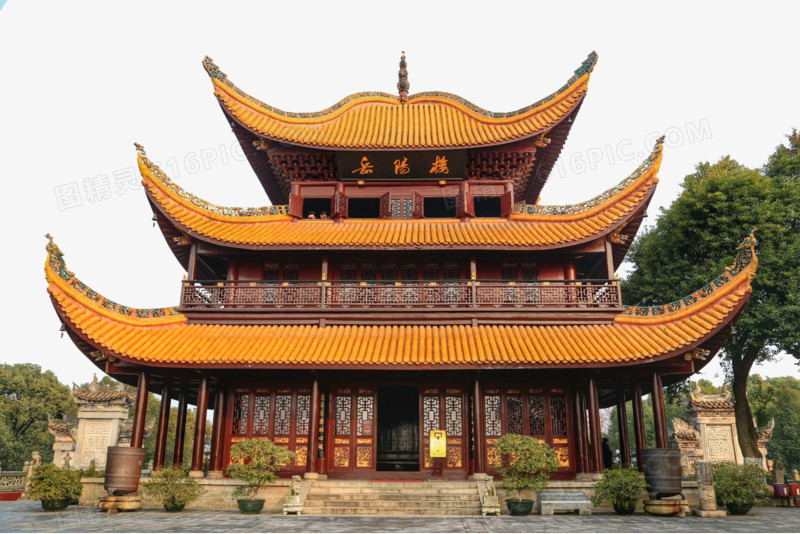
译文:
庆历四年的春天,滕子京被降职到巴陵郡做太守。隔了一年,政治清明通达,人民安居和顺,各种荒废的事业都兴办起来了。于是重新修建岳阳楼,扩大它原有的规模,把唐代名家和当代人的诗赋刻在它上面。嘱托我写一篇文章来记述这件事情。
我观看那巴陵郡的美好景色,全在洞庭湖上。衔接远山,吞没长江,流水浩浩荡荡,无边无际,一天里阴晴多变,气象千变万化。这就是岳阳楼的雄伟景象。前人的记述(已经)很详尽了。那么向北面通到巫峡,向南面直到潇水和湘水,降职的官吏和来往的诗人,大多在这里聚会,(他们)观赏自然景物而触发的感情大概会有所不同吧?像那阴雨连绵,接连几个月不放晴,寒风怒吼,浑浊的浪冲向天空;太阳和星星隐藏起光辉,山岳隐没了形体;商人和旅客(一译:行商和客商)不能通行,船桅倒下,船桨折断;傍晚天色昏暗,虎在长啸,猿在悲啼,(这时)登上这座楼,就会有一种离开国都、怀念家乡,担心人家说坏话、惧怕人家批评指责,满眼都是萧条的景象,感慨到了极点而悲伤的心情。
到了春风和煦,阳光明媚的时候,湖面平静,没有惊涛骇浪,天色湖光相连,一片碧绿,广阔无际;沙洲上的鸥鸟,时而飞翔,时而停歇,美丽的鱼游来游去,岸上的香草和小洲上的兰花,草木茂盛,青翠欲滴。有时大片烟雾完全消散,皎洁的月光一泻千里,波动的光闪着金色,静静的月影像沉入水中的玉璧,渔夫的歌声在你唱我和地响起来,这种乐趣(真是)无穷无尽啊!(这时)登上这座楼,就会感到心胸开阔、心情愉快,光荣和屈辱一并忘了,端着酒杯,吹着微风,觉得喜气洋洋了。
哎呀!我曾探求过古时仁人的心境,或者和这些人的行为两样的,为什么呢?(是由于)不因外物好坏,自己得失而或喜或悲。在朝廷上做官时,就为百姓担忧;不在朝廷做官而处在僻远的江湖中间就为国君忧虑。他进也忧虑,退也忧愁。既然这样,那么他们什么时候才会感到快乐呢?古仁人必定说:“先于天下人的忧去忧,晚于天下人的乐去乐。”呀。唉!如果没有这种人,我与谁一道归去呢?写于为庆历六年九月十五日。
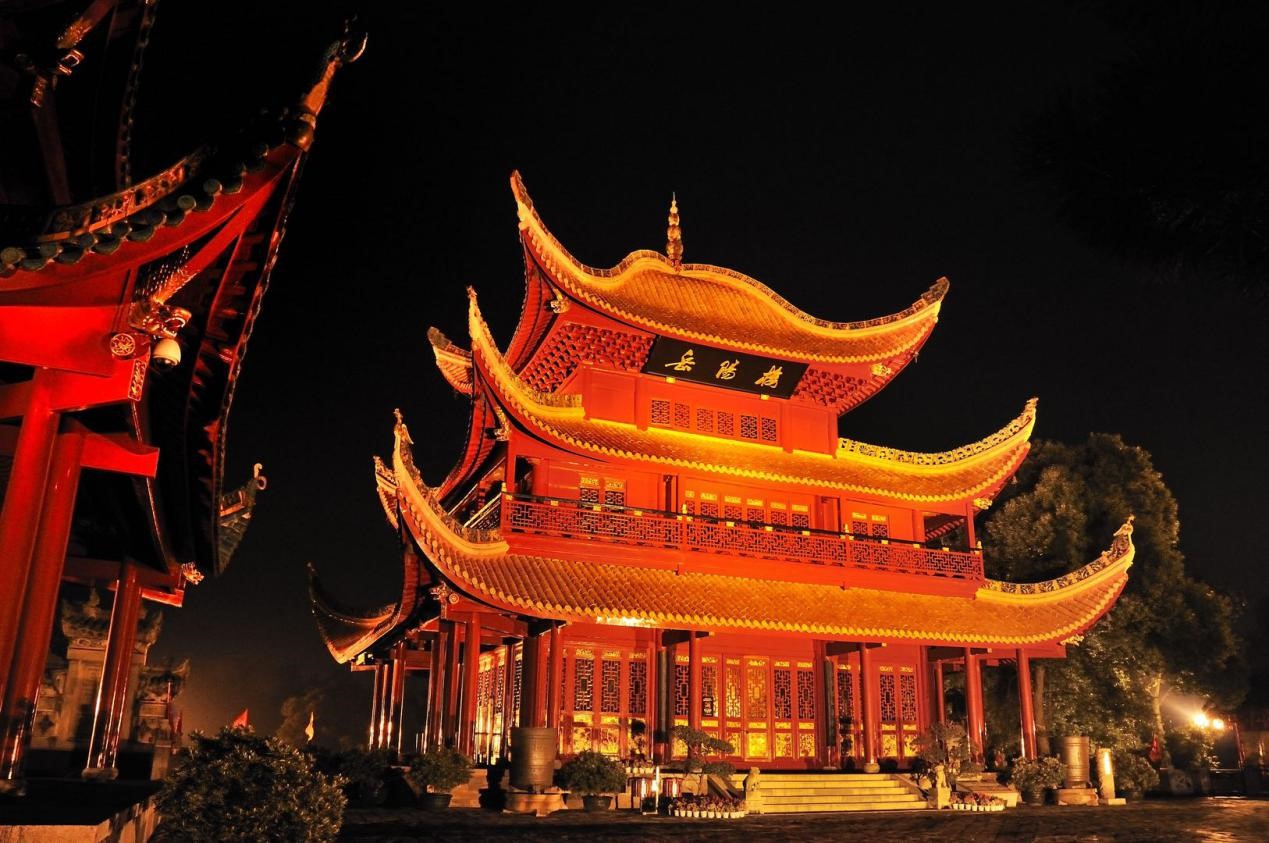
赏析:
《岳阳楼记》是作者应好友巴陵郡太守滕子京之请为重修岳阳楼而创作的一篇散文。这篇文章通过写岳阳楼的景色,以及阴雨和晴朗时带给人的不同感受,揭示了“不以物喜,不以己悲”的古仁人之心,也表达了自己“先天下之忧而忧,后天下之乐而乐”的爱国爱民情怀。文章超越了单纯写山水楼观的狭境,将自然界的晦明变化、风雨阴晴和“迁客骚人”的“览物之情”结合起来写,从而将全文的重心放到了纵议政治理想方面,扩大了文章的境界。全文记叙、写景、抒情、议论融为一体,动静相生,明暗相衬,文词简约,音节和谐,用排偶章法作景物对比,成为杂记中的创新。
《岳阳楼记》全文有三百六十八字,共五段。
文章开头即切入正题,叙述事情的本末缘起。以“庆历四年春”点明时间起笔,格调庄重雅正;说滕子京为“谪守”,已暗喻对仕途沉浮的悲慨,为后文抒情设伏。下面仅用“政通人和,百废具兴”八个字,写出滕子京的政绩,引出重修岳阳楼和作记一事,为全篇文字的导引。
第二段,格调振起,情辞激昂。先总说“巴陵胜状,在洞庭一湖”,设定下文写景范围。以下“衔远山,吞长江”寥寥数语,写尽洞庭湖之大观胜概。一“衔”一“吞”,有气势。“浩浩汤汤,横无际涯”,极言水波壮阔;“朝晖夕阴,气象万千”,概说阴晴变化,简练而又生动。前四句从空间角度,后两句从时间角度,写尽了洞庭湖的壮观景象。“前人之述备矣”一句承前启后,并回应前文“唐贤今人诗赋”一语。这句话既是谦虚,也暗含转机,经“然则”一转,引出新的意境,由单纯写景,到以情景交融的笔法来写“迁客骚人”的“览物之情”,从而构出全文的主体。
三、四两段是两个排比段,并行而下,一悲一喜,一暗一明,像两股不同的情感之流,传达出景与情互相感应的两种截然相反的人生情境。
第三段写览物而悲者。以“若夫”起笔,意味深长。这是一个引发议论的词,又表明了虚拟的情调,而这种虚拟又是对无数实境的浓缩、提炼和升华,颇有典型意义。“若夫”以下描写了一种悲凉的情境,由天气的恶劣写到人心的凄楚。这里用四字短句,层层渲染,渐次铺叙。淫雨、阴风、浊浪构成了主景,不但使日星无光,山岳藏形,也使商旅不前;或又值暮色沉沉、“虎啸猿啼”之际,令过往的“迁客骚人”有“去国怀乡”之慨、“忧谗畏讥”之惧、“感极而悲”之情。
第四段写览物而喜者。以“至若”领起,打开了一个阳光灿烂的画面。“至若”尽管也是列举性的语气,但从音节上已变得高亢嘹亮,格调上已变得明快有力。下面的描写,虽然仍为四字短句,色调却为之一变,绘出春风和畅、景色明丽、水天一碧的良辰美景。更有鸥鸟在自由翱翔,鱼儿在欢快游荡,连无知的水草兰花也充满活力。作者以极为简练的笔墨,描摹出一幅湖光春色图,读之如在眼前。值得注意的是,这一段的句式、节奏与上一段大体相仿,却也另有变奏。“而或”一句就进一步扩展了意境,增强了叠加咏叹的意味,把“喜洋洋”的气氛推向高潮,而“登斯楼也”的心境也变成了“宠辱偕忘”的超脱和“把酒临风”的挥洒自如。
第五段是全篇的重心,以“嗟夫”开启,兼有抒情和议论的意味。作者在列举了悲喜两种情境后,笔调突然激扬,道出了超乎这两者之上的一种更高的理想境界,那就是“不以物喜,不以己悲”。感物而动,因物悲喜虽然是人之常情,但并不是做人的最高境界。古代的仁人,就有坚定的意志,不为外界条件的变化动摇。无论是“居庙堂之高”还是“处江湖之远”,忧国忧民之心不改,“进亦忧,退亦忧”。这似乎有悖于常理,有些不可思议。作者也就此拟出一问一答,假托古圣立言,发出了“先天下之忧而忧,后天下之乐而乐”的誓言,曲终奏雅,点明了全篇的主旨。“噫!微斯人,吾谁与归”一句结语,“如怨如慕,如泣如诉”,悲凉慷慨,一往情深,令人感喟。文章最后标明写作时间,与篇首照应。
这篇文章表现作者虽身居江湖,心忧国事,虽遭迫害,仍不放弃理想的顽强意志,同时,也是对被贬战友的鼓励和安慰。《岳阳楼记》的著名,是因为它的思想境界崇高。和它同时的另一位文学家欧阳修在为他写的碑文中说,他从小就有志于天下,常自诵曰:“士当先天下之忧而忧,后天下之乐而乐也。”可见《岳阳楼记》末尾所说的“先天下之忧而忧,后天下之乐而乐”,是范仲淹一生行为的准则。孟子说:“达则兼善天下,穷则独善其身”。这已成为封建时代许多士大夫的信条。范仲淹写这篇文章的时候正贬官在外,“处江湖之远”,本来可以采取独善其身的态度,落得清闲快乐,但他提出正直的士大夫应立身行一的准则,认为个人的荣辱升迁应置之度外,“不以物喜,不以己悲”要“先天下之忧而忧,后天下之乐而乐”,勉励自己和朋友,这是难能可贵的。这两句话所体现的精神,那种吃苦在前,享乐在后的品质,无疑仍有教育意义。
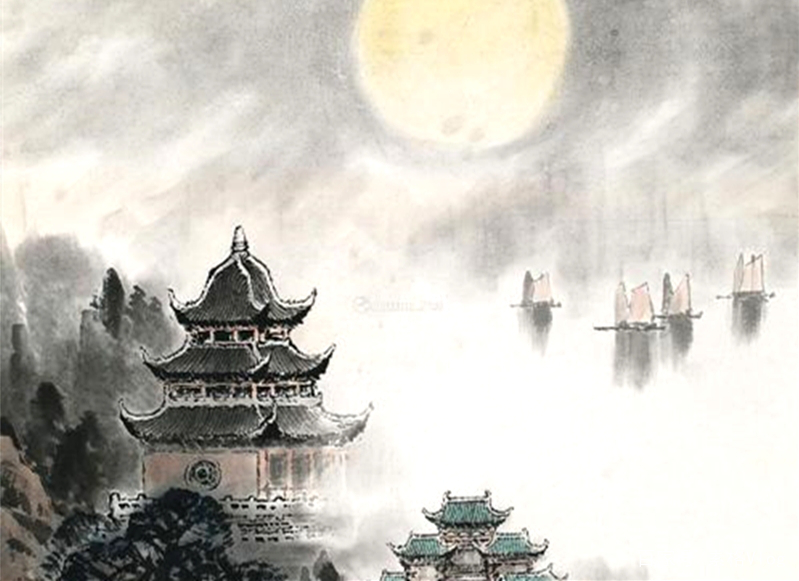
英文直译
English literal translation
In the spring of the fourth year of Qingli, tengzijing was relegated to baling county. Over the next year, the government is smooth and the people are harmonious, and all kinds of waste are prosperous. It is to rebuild the Yueyang Tower, increase its old system, and engrave the poems of Tang sages and modern people on it, which belongs to the composition to remember.
Yu Guanfu's baling looks like a victory, in a lake in Dongting. The Grand View of Yueyang Tower is also prepared by predecessors. However, Wuxia in the north, Xiaoxiang in the south pole, and poets who move to other places will often be here. What's the difference between seeing things?
If the rain falls, the moon doesn't open, the Yin wind howls, the turbid waves are empty, the sun and stars are hidden, the mountains are hidden, the business trip is not good, the spars are destroyed by boats, the tigers roar and apes cry in the dusk. There are also those who go to the country and cherish their hometown, worry, slander, fear and ridicule, look bleak, and feel extremely sad.
If the spring is peaceful and the scenery is bright, the waves are calm, the sky is clear, the sand gulls are abundant, the brocade scales swim, the shore Zhi Tinglan is gloomy and green. Or a long smoke, a bright moon, a floating light and gold, a still shadow, and fishing songs answer each other. What a joy! There are also those who are relaxed and happy, who spoil and disgrace and forget, and who bring wine to the wind.
Ho Fu! What is it to seek the heart of ancient benevolent people, or to do something different from the two? Do not rejoice in things, do not mourn for yourself. If you live high in a temple, you will worry about your people, and if you are far away from the Jianghu, you will worry about your king. It's a matter of worrying about going forward and retreating. But when? It must say, "worry about the worries of the world before the happiness of the world"! Oh! Weisi, who will go home?
September 15, 2006.
translation
In the spring of the fourth year of Qingli, Teng Zijing was demoted to baling County as a prefect. A year later, politics was clear and accessible, the people lived in peace and harmony, and all kinds of abandoned undertakings were set up. Therefore, Yueyang Tower was rebuilt, its original scale was expanded, and the poems and poems of famous scholars of the Tang Dynasty and contemporary people were engraved on it. I was asked to write an article about it.
I watched the beautiful scenery of Baling County, all on Dongting Lake. Connecting the distant mountains and swallowing the Yangtze River, the flowing water is vast and boundless. The weather is changeable in a day. This is the majestic scene of Yueyang Tower. The previous accounts are very detailed. Then it leads to Wuxia in the north and Xiaoshui and Xiangshui in the south. Most demoted officials and poets meet here, Maybe the feelings triggered by watching natural scenery are different? For example, it is raining continuously, it does not clear up for months, the cold wind roars, and the turbid waves rush into the sky; the sun and stars hide their brilliance, and the mountains disappear; businessmen and tourists Unable to pass, the mast fell down and the oar broke; in the evening, the sky was dark, the tiger was howling and the ape was crying sadly. When you climb this building, you will have a feeling of leaving the capital of the country, missing your hometown, worrying about people's bad words and being afraid of people's criticism. Your eyes are full of depression, and you feel extremely sad.
When the spring breeze is warm and the sun is bright, the lake is calm without rough waves. The sky is connected with the lake light. It is green and boundless. Gulls on sandbars sometimes fly, sometimes stop, beautiful fish swim around, herbs on the shore and orchids on small islands are lush and green. Sometimes a large amount of smoke disappears completely, and the bright moonlight fluctuates for thousands of miles The light is shining golden, the quiet moon shadow is like a jade wall submerged in the water, and the fisherman's song is singing to you and me. This kind of fun (really) is endless! (at this time) when you climb this building, you will feel open-minded, happy, forget glory and humiliation, and feel happy with a wine glass and a breeze.
Alas! I have explored the mood of benevolent people in ancient times, or what is different from their behavior. Why? (because) They will not be happy or sad about their own gains or losses because of the quality of foreign things. When they are officials in the imperial court, they worry about the people; when they are not officials in the imperial court but in the remote Jianghu, they worry about the monarch. They worry about their advance and retreat. In this case, when will they feel happy? Gu Renren must say, "worry before people in the world, and enjoy later than people in the world." Ah. Alas! If there were no such people, who would I go back with? It was written on September 15, the sixth year of the lunar calendar.
appreciation
The story of Yueyang Tower is an essay written by the author at the request of his good friend Teng Zijing, the governor of Baling County, to rebuild Yueyang Tower. By writing about the scenery of Yueyang Tower and the different feelings brought to people in rainy and sunny days, this article reveals the ancient benevolent people's heart of "not happy with things, not sad for themselves", and also expresses his "worry about the worries of the world before the joy of the world" The article goes beyond the narrow realm of simply writing landscape and building views, and combines the dark changes of nature, the ups and downs and the "feeling of seeing things" of "moving guests and poets" Combined with writing, the focus of the full text is placed on the vertical discussion of political ideals, which expands the realm of the article. The full text integrates narration, landscape painting, lyricism and discussion, the combination of movement and static, the contrast of light and shade, the simplicity of words and syllables, and the comparison of scenery and objects with platoon composition, which has become an innovation in miscellaneous notes.
The full text of Yueyang Tower has 368 words and five paragraphs.
At the beginning of the article, I cut into the main topic and described the origin of the matter. I started with "the spring of the fourth year of the Qingli calendar" to point out the time, with a solemn and dignified style; I said Teng Zijing was "relegated to guard", which has implied the sadness over the ups and downs of his official career and set the stage for the later Lyric. Below, I just use "politics and people are harmonious, and all wastes are prosperous" Eight words, write Teng Zijing's political achievements, lead to the reconstruction of Yueyang Tower and write a note, which is the guide of the whole text.
In the second paragraph, the style is uplifting and the sentiment is passionate. Mr. Xian always said that "baling is victorious, and there is a lake in Dongting", and set the scope of the scenery below. The following few words "title distant mountains and swallow the Yangtze River" describe the Grand View of Dongting Lake. One "title" and one "swallow" have momentum. "Vast soup, boundless horizon", which says that the water waves are magnificent; "the morning sun is shining and the evening is cloudy, and the atmosphere is myriad" The first four sentences describe the spectacular scene of Dongting Lake from the perspective of space and the last two sentences describe the spectacular scene of Dongting Lake from the perspective of time. The sentence "the preparation of predecessors" links the past and the future, and responds to the previous sentence "poetry and Fu of Tang Xian and modern people". This sentence is both modest and implies a turnaround, which is based on "however" In a turn, it leads to a new artistic conception, from simple landscape painting to writing the "feeling of seeing things" of "moving guests and poets" with the style of blending feelings and scenes, so as to construct the main body of the full text.
3、 Four and two paragraphs are two parallel paragraphs, one sad and one happy, one dark and one bright. They are like two different emotional streams, conveying two completely opposite life situations in which scenery and emotion interact with each other.
The third paragraph is about those who read things and feel sad. It is meaningful to start with "Ruofu". This is a word that causes discussion and shows the mood of virtual, which is the concentration, refinement and sublimation of countless real situations, which is of typical significance. "Ruofu" The following describes a sad situation, from the bad weather to the sadness of people's hearts. Here, four word short sentences are used to render layer by layer and gradually describe it. The main scene is composed of obscene rain, overcast wind and turbid waves, which not only makes the sun and stars shine, but also makes the mountain and moon hide, but also makes the business travel stagnant; or at the time of dusk and "tiger roaring and ape crowing", the past "migrant poets" have the feeling of "going to the country and nostalgia" "Fear of slander and ridicule" and "feeling extremely sad".
The fourth paragraph describes those who enjoy reading things. Led by "Zhiruo", it opens a sunny picture. "Zhiruo" Although it is also an enumerative tone, it has become loud and clear in syllables and lively and powerful in style. Although the following description is still a four character short sentence, the tone has changed. It depicts the beautiful scenery of a beautiful day with gentle spring breeze, bright scenery and clear water and sky. More gulls are flying freely, fish are wandering happily, and even ignorant water plants and orchids are full of vitality. The author It is worth noting that the sentence pattern and rhythm of this paragraph are generally similar to that of the previous paragraph, but there are also other variations. "Or" further expands the artistic conception, enhances the meaning of superimposed aria, pushes the "jubilant" atmosphere to a climax, and the state of mind of "dens tower" has become The detachment of "spoiling, humiliating and forgetting" and the free and easy use of "wine facing the wind".
The fifth paragraph is the focus of the whole article, which is opened with "Ho Fu", which is both lyrical and argumentative. After listing the two situations of sadness and joy, the author's tone suddenly rises, revealing a higher ideal realm beyond the two, that is, "don't be happy with things, don't be sad with yourself" It is human nature to feel things and move because things are sad and happy, but it is not the highest state of life. Benevolent people in ancient times have a firm will and will not be shaken by changes in external conditions. Whether they are "high in the temple" or "far away from the Jianghu", they do not change their concern for the country and the people, and "worry about both advancing and retreating" This seems to be contrary to common sense, which is incredible. The author also drew up a question and answer. Under the pretext of the ancient sage's words, he issued the oath of "worry about the world first, and enjoy the music of the world later". The music finally played elegant, pointing out the theme of the whole article. "Oh! Weisi people, who will go home?" is the conclusion, "such as resentment, such as admiration, such as crying, such as complaint It's sad, generous and deeply affectionate, which makes people sigh. The last part of the article indicates the writing time and takes care of the first part of the article.
This article shows that although the author lives in the Jianghu, worries about national affairs and is persecuted, he still does not give up his ideals. At the same time, it is also an encouragement and comfort to his demoted comrades in arms. The story of Yueyang Tower is famous because of its lofty ideological realm. Ouyang Xiu, another writer at the same time, said in an inscription written for him that he has been interested in the world since childhood and often recites: "Scholars should worry about the worries of the world first and enjoy the happiness of the world later." it can be seen that "worry about the worries of the world first and enjoy the happiness of the world later" at the end of Yueyang Tower is the code of Fan Zhongyan's behavior all his life. Mencius said: "if you reach, you will be good to the world, and if you are poor, you will be good to yourself." This has become the creed of many scholar bureaucrats in the feudal era. When Fan Zhongyan wrote this article, he was demoting officials and was "far away from the Jianghu". He could have taken an independent attitude and achieved leisure and happiness. However, he put forward the principle that upright scholar bureaucrats should stand on their own and do one thing. He believed that personal honor and disgrace should be ignored, and "don't be happy with things, don't be sad about themselves" It is valuable to encourage yourself and your friends to "worry about the world first and enjoy the world later". The spirit embodied in these two sentences, the quality of suffering first and pleasure later, undoubtedly still has educational significance.
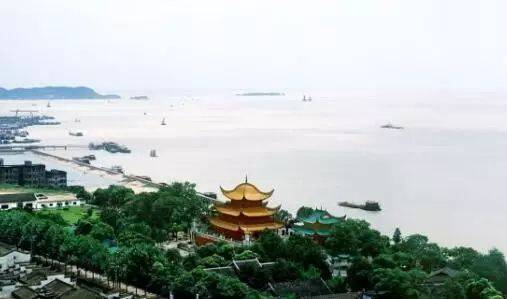

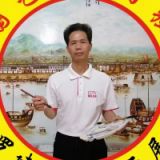
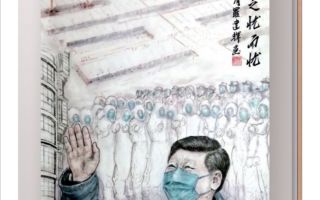
0 条 评 论 Write a Response